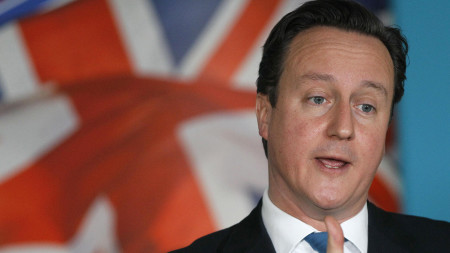Few would argue that the result of last week’s General Election spelled bad news for many who are planning to come and stay in Britain, for anyone who might arrive here unplanned and for many who are already here.

Immigration is the issue David Cameron failed most spectacularly to deliver on in the previous administration, and the Conservatives were so rocked by the apparent surge in popularity enjoyed by UKIP, who lead with immigration much like a boxer leads with his jab, that they are sure to want to finish what they started.
David Cameron’s pledge, in an interview prior to the 2010 General Election, to reduce net immigration to tens of thousands, a pledge that was repeated in the Conservatives’ 2010 Election Manifesto, could scarcely have come at a worse time.
Popular uprisings in North Africa and the Middle-East as well as armed conflict in the region and the activities of radical, generally Islamist, rebel groups resulted in unprecedented numbers of refugees fleeing into Europe, with Britain a favoured final destination.
In addition, transitional controls imposed on the EU’s two newest member states in 2007, expired in 2014, meaning Romanians and Bulgarians could now enter and work in Britain freely; all of which conspired against Mr Cameron hitting his target.
Last week’s vote – an unexpected Conservative majority and a substantial turnout for UKIP, albeit for one seat as the reward, is a clear mandate to carry on in the same vein. Migrants will be further discouraged by increasingly punitive measures, some of which are beginning to discourage tourism. But isn’t this government committed to business – and isn’t tourism one of the UK’s most important?
Tighter immigration rules, increased bureaucracy, scowling, officious border staff and fairly discouraging rhetoric from politicians are making Britain an unwelcoming place for visitors.
Tourism accounted for 9 per cent of gross domestic product and 10 per cent of employment in 2013, according to figures cited in a Commons committee report in March. Almost one-third of UK jobs created over the past three years have been in tourist-related businesses.
Tourists are put off by being told they are not welcome. Some in the previous and current Tory administration understand this. Battles over the balance between controlling immigration and attracting tourists have pitted top Conservatives against each other.
For years, the argument was over visas for Chinese visitors. Tourists from China can apply for a Schengen visa, which gives them the right to travel to 26 European countries. They need a separate visa for the UK, which is not party to the Schengen border-free travel agreement.
It is a hassle. Of Chinese travellers to Europe, 94 per cent apply for a Schengen visa only, according to Paul Barnes of the UK China Visa Alliance lobbying group. The group asked the government to agree to joint UK and Schengen visa applications. In 2012, the Financial Times reported that David Cameron and George Osborne, the chancellor, were frustrated that Theresa May had not made progress on this.
She eventually budged. Chinese tourists can now fill in one form, but they still have to make a special visit to a UK-appointed company to be photographed and fingerprinted.
Ms May also proposed visa restrictions for Brazilians, which she put on hold after protests from cabinet members and Robert Halfon, Tory MP and co-chairman of the British-Brazil parliamentary group. In addition, she abandoned a scheme for a £3,000 bond for visitors from India, Nigeria, Pakistan, Kenya, Sri Lanka and Bangladesh.
All these proposals left foreigners feeling victimised, as have the government’s policies on foreign students at UK universities — like tourism, a sector of great importance to the British economy.
The government has included foreign students in its immigration target, in spite of representatives from every corner of UK business asking it not to.
It also restricted the right of foreign graduates to work for a limited period after their degrees. The all-party parliamentary group on migration, which includes Conservatives, said some students were instead going to university in Australia.
In January, it was reported that Mr Osborne had quashed plans by Ms May to clamp down further.
What will the new government’s direction be? John Whittingdale, the new culture secretary whose brief includes tourism, chaired the committee that produced the report explaining the sector’s importance. Both Mr Osborne and Ms May would like to succeed Mr Cameron. The battles are likely to continue.








